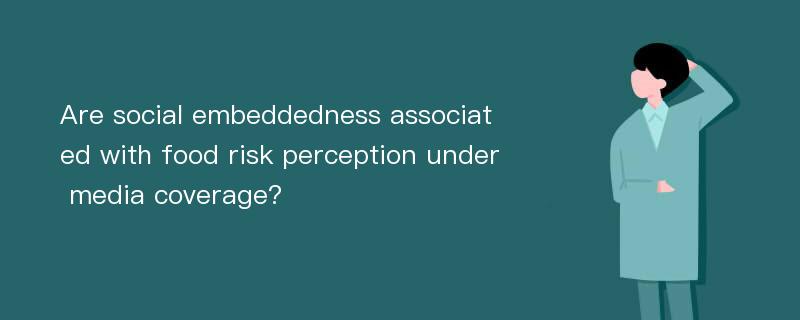
论文摘要
Traceability system has received wide attention in solving food safety issues, via which food information could be tracked back to producer/farmers. Consumers need to obtain this information from producers or social networks, trust in the information,and consequently assess perceived risks, especially when food scandals are exposed to the media. In this study, we introduce the social embeddedness theory to understand how consumers’ social activities affect their risk perceptions on traceable food. Specifically, we investigate how risk perceptions are predicted by the interpersonal relationships, organizational level and social-level relationships. Results show that the interpersonal relationships were associated with lower levels of risk perceptions, while organizational and social relationships impacted consumer’s risk perceptions at middle and higher levels,respectively. Results also show that the "ripple effect" extended to effect of risk events with negative information, however,did not exist for the group exposed to positive information. Potential food safety implications have been proposed to identify for effective risk mitigation under media coverages.
论文目录
文章来源
类型: 期刊论文
作者: YAN Zhen,HUANG Zu-hui,WANG Yu,ZHOU Jie-hong
来源: Journal of Integrative Agriculture 2019年08期
年度: 2019
分类: 农业科技,工程科技Ⅰ辑,信息科技
专业: 轻工业手工业,新闻与传媒
单位: Center of Agricultural and Rural Development, School of Public Affairs, Zhejiang University
基金: support from the National Natural Science Foundation of China (71773109,71703150 and 71633002),the support from the Fundamental Research Funds for the Central Universities,China
分类号: G206;TS201.6
页码: 1804-1819
总页数: 16
文件大小: 437K
下载量: 27
